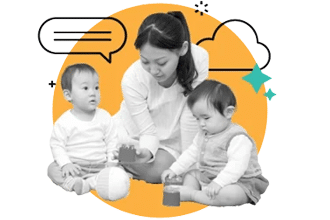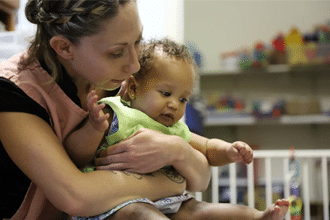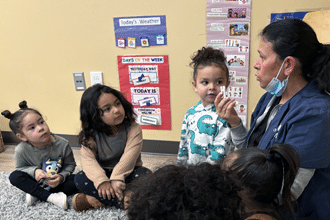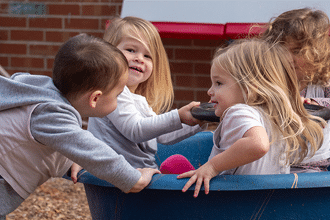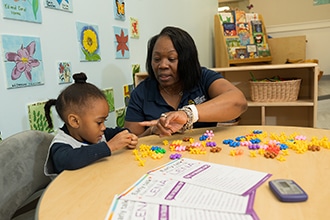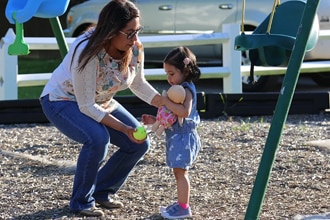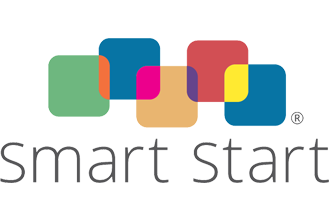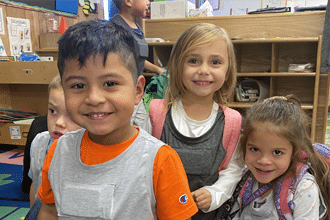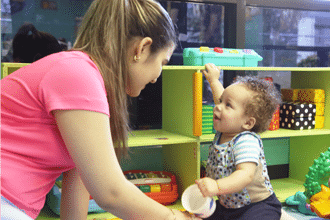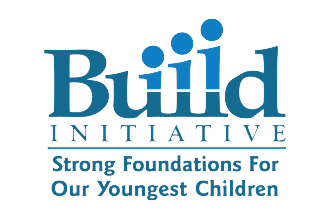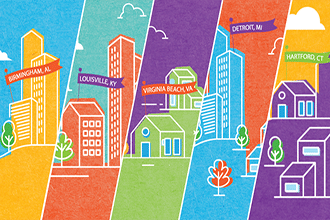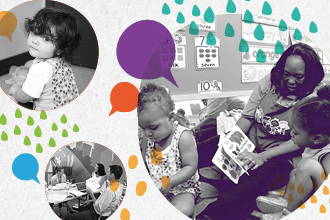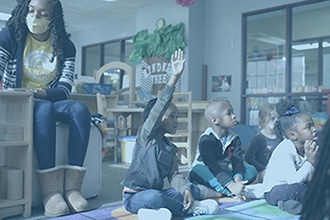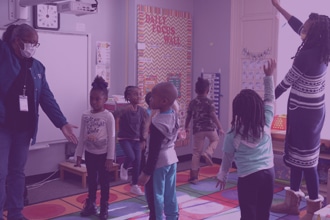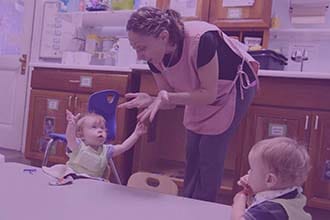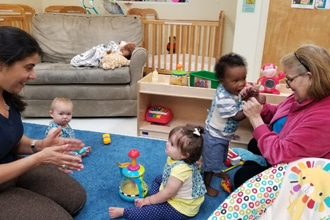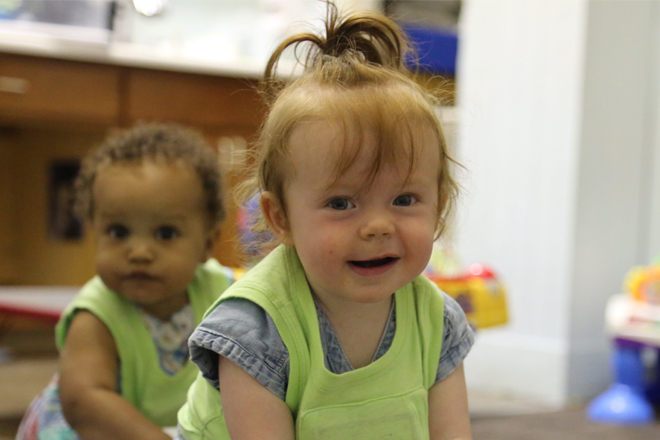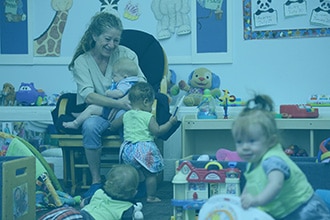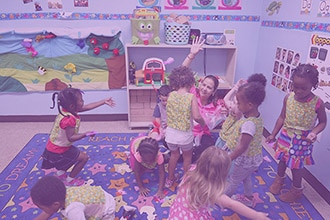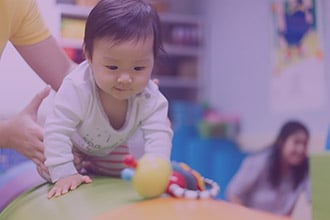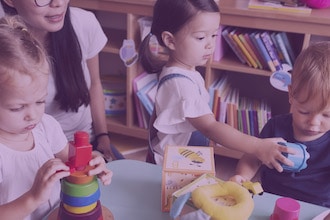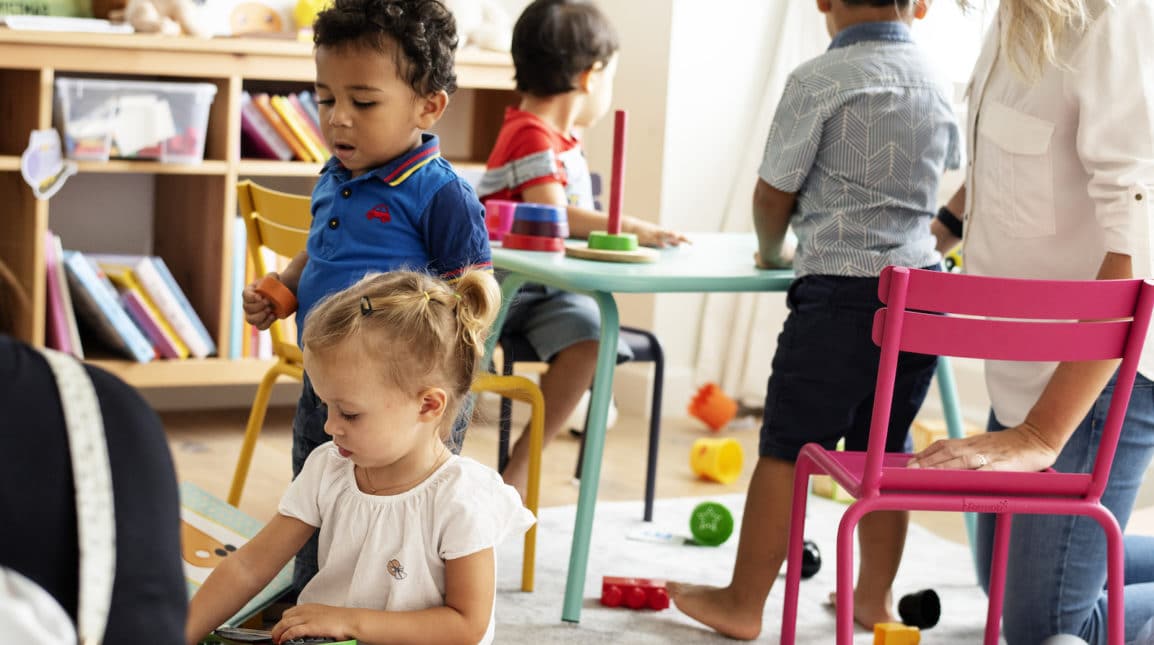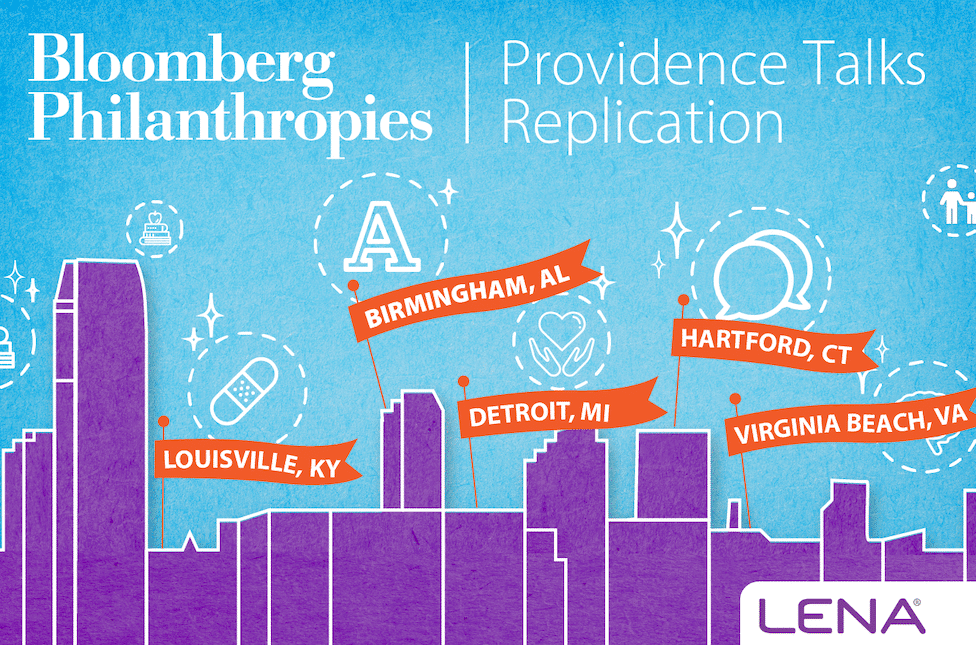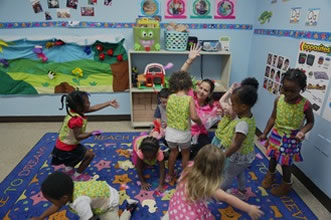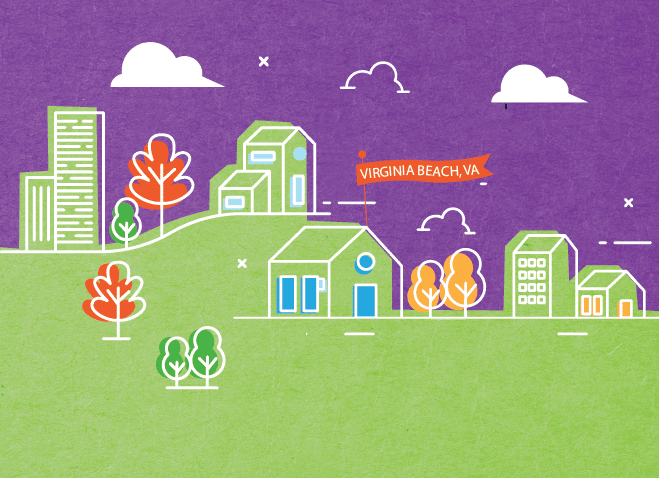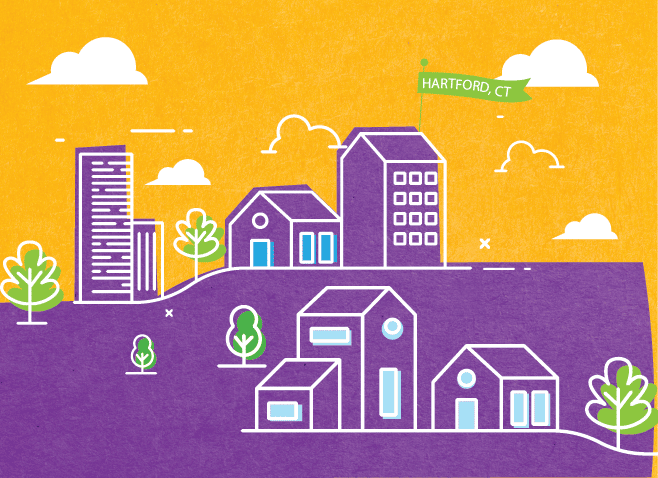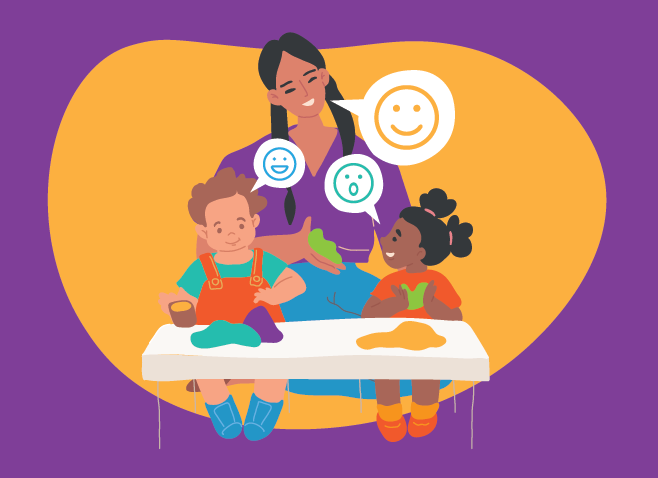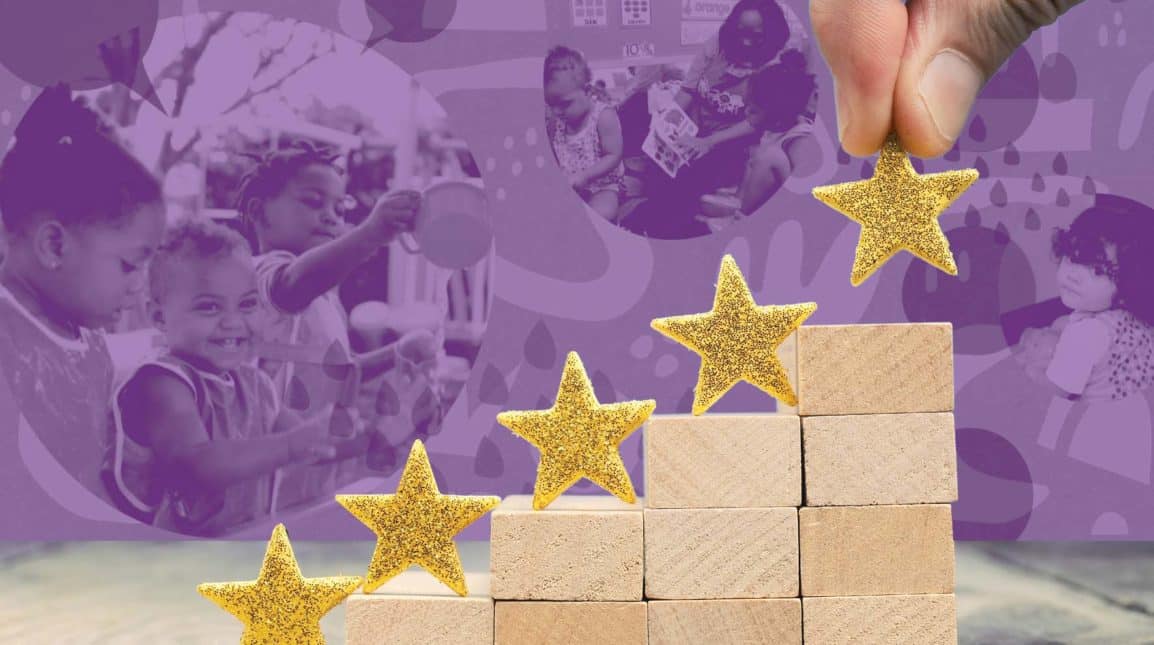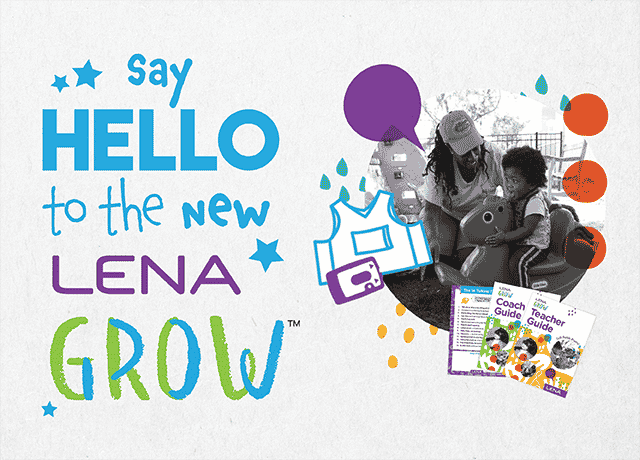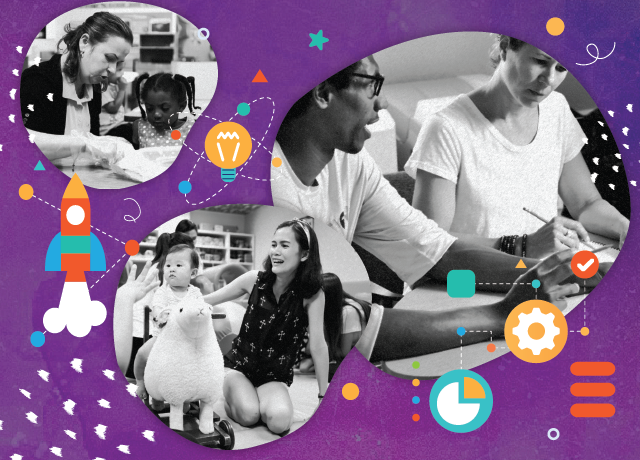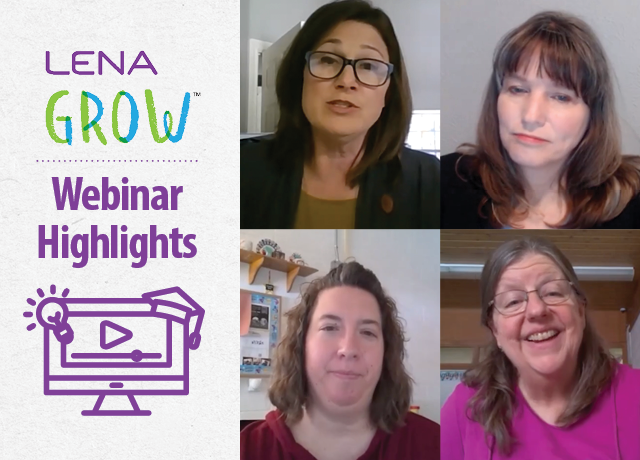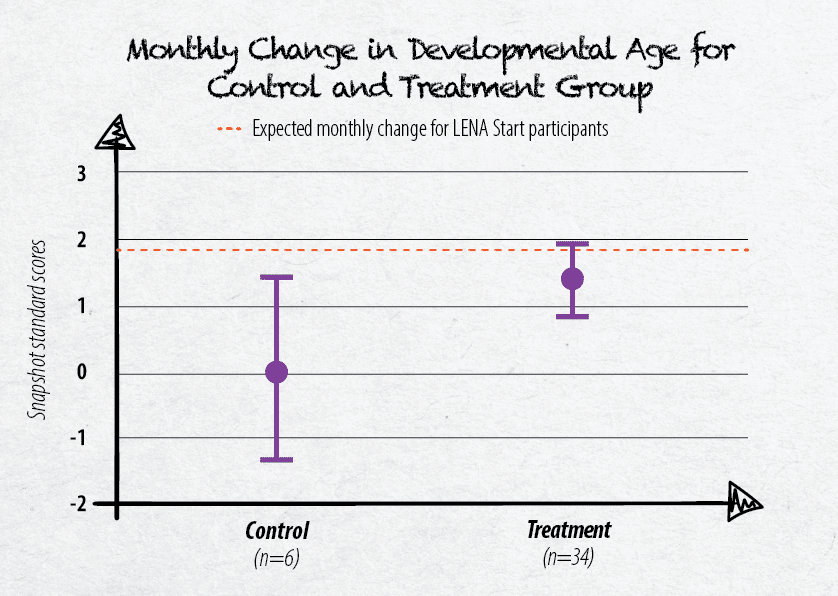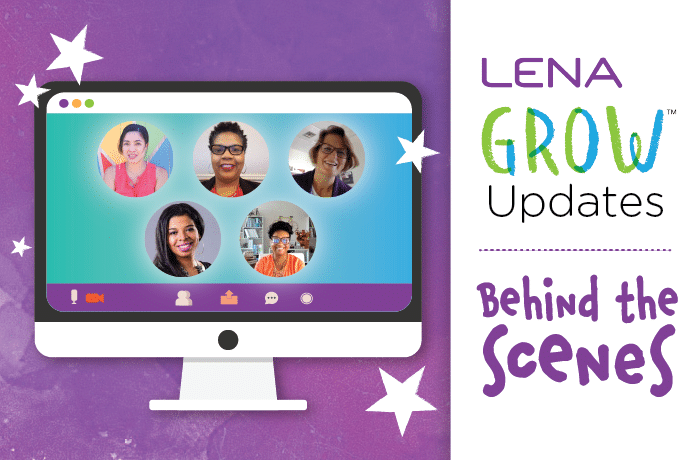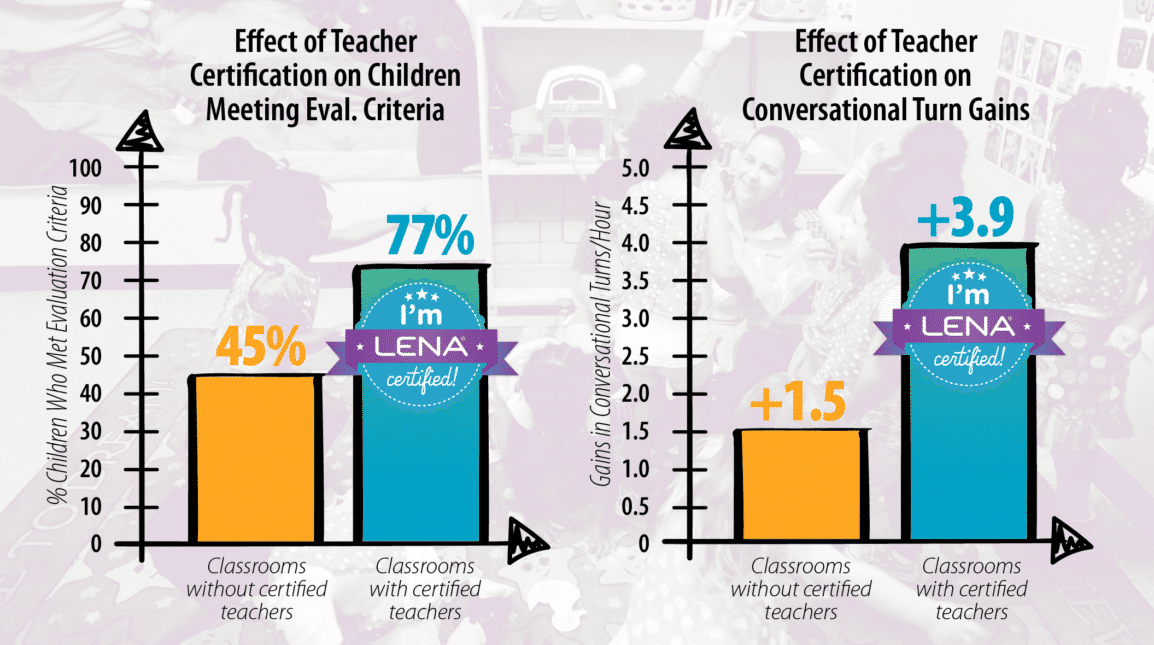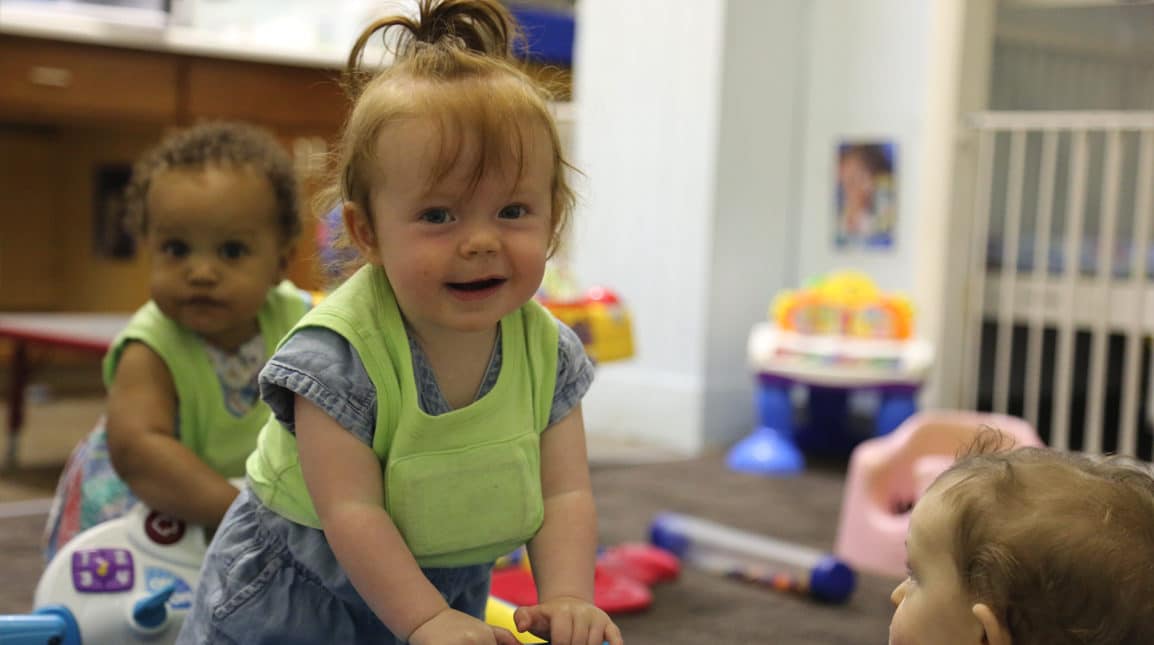If a child’s sense of self affects academic and lifelong outcomes, how can we set them up for success in their earliest years? It all begins with a conversation. In this webinar, we’ll pair theory with classroom experience, hearing from a panel of esteemed experts in early childhood development and education.
Webinars (31)
Early Literacy Is an Open Book
Literacy is a powerful thing. When you can read and write, you can aspire to anything. But teaching reading — let alone implementing literacy programming for every child — is not easy.
Rethinking School Readiness
“School readiness” often gets tangled in a web of standards and divided responsibilities. So let’s simplify it. We’re rethinking school readiness by focusing on the essentials: early language skills that form the bedrock of future success.
Understanding Challenging Behavior in Early Childhood Education
In this webinar we will discuss how a focused approach on educator-child interactions can enhance relationships, support healthy social behaviors, manage challenging behaviors, and prevent them from occurring.
Multilingualism and heritage languages in early childhood education: Amplifying a call to action
In this webinar, LENA’s researchers will expand on their findings about inequities in child care and preschool settings with a new dataset. These findings will act as a springboard to a solutions-based discussion, inviting perspectives from experts on supporting multi-language learners in early childhood.
Sustainable, scalable initiatives in early childhood: What’s next for funding and quality improvement?
It’s no easy task for early childhood leaders to strategically disburse funds from PDG B-5, CCDBG, CLSD, and ARPA grants into the hands of LEAs and CCR&Rs. In fact, the alphabet soup of early childhood education funding streams can be a bit hard to digest, so to speak. In this webinar, state leaders will tell the stories of how and why they invested in initiatives for statewide implementation, as well as their visions for further expansion and impact.
Setbacks and Solutions: Helping early educators navigate language and social-emotional delays
It’s more important than ever to equip early childhood educators to address children’s unique needs and help get their language and social-emotional development on track. There’s strong new evidence to suggest that LENA Grow, a language-focused professional development program for early educators, is effective at doing just that.
Support from the Start: The Power of Responsive Interactions in Supporting Infant and Early Childhood Mental Health
What are the most effective, accessible, achievable ways to nurture infant and early childhood mental health/social and emotional well-being in young children? As anyone who has ever cared for a young child or talked to a stressed-out early educator or struggling parent well knows, this is a question that deserves all the attention it can get.
Measurable Talk = Immeasurable Benefits: Improving Teacher-child Interactions in Early Childhood Education
Learn how LENA technology supports positive outcomes for social-emotional, language, and cognitive development, delivering equity-minded insights into how children experience interactions on an individual level. Hosted by Smart Start.
“Because of the data”: LENA Grow at Pasco County Schools
The Director of Early Childhood Programs and an instructional coach from Pasco County Schools, Fla., describe the why and the how of their LENA journey, touching on topics such as family engagement, CLASS scores, funding, and teacher job satisfaction.
Evaluating LENA Grow’s impact on early childhood education classrooms
Two independent program evaluations of LENA Grow show links between the professional development program and positive outcomes for early childhood educators and the children in their care.
A New Approach to Data-driven Quality Improvement in Early Childhood Programs
Hosted by the BUILD Initiative and featuring Jodi Whiteman, LENA’s Director of Partnerships and Growth, this webinar examines how state leaders at looking at quality improvement initiatives in terms of cost and scalability, alignment with philosophy, impact and evaluation, and provider perspectives.
Providence Talks Replication: Celebrating and Looking Ahead
In 2019, five U.S. cities were selected to receive a three-year grant to replicate the widely celebrated Providence Talks early literacy program. As the grant period draws to a close, we’re sharing their stories of what worked.
Say hello to the new LENA Grow: Making every interaction count in early childhood education
Hear the individual stories of how LENA Grow has made a difference at every level of the early childhood education system, and learn about the big picture of LENA’s vision for LENA Grow as it reaches more and more communities.
Every interaction counts: Bringing back a thriving culture through early talk
Join ELC of Orange County and ELC of Sarasota County as they share their data and stories on how they’ve increased teacher confidence, competence, and CLASS scores while improving quality assessment outcomes despite the challenges of the past two years.
Staff retention and stress reduction: Bringing positivity (back) into the classroom with LENA Grow
What can we do in the here and now to keep our best educators in infant, toddler, and preschool classrooms? For one, we can rediscover just how wonderful classrooms can be.
Supporting early childhood educators now: strategies for building a voice and a community
Being an early childhood educator has always been challenging, but it seems to be getting harder. This webinar focuses on practical strategies to support educators by giving them a voice and building a community.
The return of in-classroom QRIS assessments: Building confidence among early childhood educators
There’s been no shortage of recent news about early childhood education. Join us for a discussion about a prominent challenge facing early education professionals that keeps a much lower profile: the return of in-classroom QRIS assessments.
What the Texas Rising Star QRIS can tell us about quality child care interactions
In Texas, the most recent review of the early childhood QRIS called for a greater emphasis to be placed on caregiver-child interactions. How is Workforce Solutions for North Central Texas using LENA Grow to help child care providers increase quality adult-child interactions?
Inside Early Talk: Our point of greatest leverage for improving children’s futures
We find ourselves in the unprecedented position to understand the early language environments of very young children and answer questions we’ve been hearing from the early childhood education field for years.
Supporting teachers in building a responsive caregiving environment
There’s a wide variability of interactions across child care settings. What makes an interaction a quality interaction, and how do we reduce teacher stress while supporting their drive for quality interactions?
Funding a Head Start Model that Will Change the Course of Children’s Lives: Strategies for a Winning Head Start Application
In September 2020, the Office of Head Start released over $1 billion in Head Start funding competitions. How do you develop a vision and strategy for writing a compelling Head Start application?
Head Start Funding Opportunities
How can we leverage funding opportunities to integrate a trauma-informed approach to accelerating language and literacy skills?
Connecting Cradle to Career: Why Universities Need to Care About Early Childhood
Learn how Adelphi University and the University of the Pacific have taken on innovative roles in their communities’ cradle-to-career (C2C) pipelines.
Mitigating the Academic and Social Impacts of COVID-19 in Child Care
COVID-19 recommendations have changed the way child care providers are able to interact with children and support their early academic and social development. How can we continue to adapt while creating a positive learning environment?
Every child ready by kindergarten: A case study in one school district’s vision of early childhood
New neuroscience research shows us that the first five years of a child’s life are the most critical period for brain development. What are school districts doing to give all children an equitable start?
Integrating Innovative Professional Development for EHS/HS classrooms into Statewide Systems
Mississippi is piloting a systems-level approach to supporting Early Head Start/Head Start providers in order to meet their school readiness goals. Learn how they’re rolling out job-embedded professional development designed to increase the quality of caregiver-child engagement.
Integrating Professional Development for Family Child Care Providers into Statewide Systems
Family child care providers face unique challenges. Colorado is trying to combat these challenges with job-embedded professional development. Learn more about the initiative and its early results.
Creating Inclusive and Equitable Classroom Experiences
What does equity look like in early childhood classrooms? Learn concrete strategies for supporting coaches, teachers, and administrators in fostering more equitable classroom environments.
Providence Talks Replication: Early Childhood Innovation at the Municipal Level
Providence Talks was one of the first early language initiatives implemented at the municipal level, with support from Bloomberg Philanthropies. Learn how the program is being replicated in five more cities.
Building Classroom Quality Through Language
How can organizations support teachers in building classroom quality through interactive language? See where we stand and learn about the challenges and opportunities associated with increasing interactions.
Blog Posts (24)
Providence Talks Replication: A renewed commitment to quality child care in Virginia Beach
“Investing in our youngest citizens at birth and continuing to do so throughout their school years makes smart economic sense,” says Virginia Beach GrowSmart coordinator Barbara Lito.
Providence Talks Replication: Sustaining growth and “working toward yes” in Birmingham
Having nearly quadrupled their reach in just three years’ time, Birmingham Talks is focused on a bright future.
Providence Talks Replication: Building city-wide impact one family at a time in Hartford
Entering its fourth year, Hartford Talks is focusing on families. Here are two families’ LENA stories.
Research shows links between LENA Grow participation and social-emotional growth
Analyses reveal strong evidence that LENA Grow may give children’s social-emotional development a boost.
How LENA Grow teaches a coach to be a better coach
Seven ways LENA Grow has helped me help teachers take active charge of their own learning.
QRIS and interaction: Do quality rating systems reflect individual experience?
Data analysis suggests that approximately 1 in 4 children experiences very little adult-child interaction, even within classrooms at centers that have achieved the highest QRIS rating possible.
Announcing new enhancements to LENA Grow: Easy, inclusive, equitable
LENA Grow is designed to make every interaction count in early childhood education. The new enhancements make it easy, inclusive, and equitable.
Expanding PD hours for early childhood educators participating in LENA Grow
We’re committed to maximizing LENA Grow’s impact on early educators’ careers. Expanding LENA Grow’s approval for professional development hours is an important part of that equation.
A teacher, a coach, and an administrator on LENA Grow’s impact: Webinar highlights
Highlights from a webinar where we hear directly from a teacher, coach, and administrator using LENA Grow.
Preliminary findings suggest LENA Grow accelerates language development
Children participating in LENA Grow gained nearly 1.5 months’ worth of language skill acquisition in just one month’s time, achieving developmental milestones at an accelerated rate.
5 steps to successful LENA Grow recruitment
How to talk with teachers, family child care providers, and center directors about participating in LENA Grow.
LENA Grow updates are coming…So who’s behind the curtain?!
These 12 LENA Grow advisors are helping to implement big improvements to the program.
The positive impact of LENA Grow certification
LENA’s research team completed an analysis of the impact that certification has on teachers who participate in LENA Grow.
A renewed emphasis on adult-child interactions in Texas
A recent change to the Texas Rising Star QRIS assigns more weight to the importance of adult-child interactions in early childhood programs.
Articles (30)
These Indy early childhood centers want infants and toddlers to be noisy
Some educators are using this new technology to understand infants’ speech development.
Let’s talk: Teachers pushed to converse more with youngest kids
States are using talk pedometers, conversation coaches to develop young brains
How Birmingham, Ala., Used Tech to Support Youngest Learners
Both programs rely on technology pioneered by the national nonprofit LENA (Language ENvironment Analysis), which tracks how many conversational turns children hear and provides feedback so parents can make sustainable increases in line with the science.
Early Learning Indiana partners with LENA for early literacy skills
Early Learning Indiana (ELI) announced a partnership with LENA, a leading nonprofit in research and programming for early language development.
What’s behind a spike in childhood speech development delays across the U.S.
PBS Wisconsin's Zac Schultz reports on what's behind the delays and whether schools have the resources to help teachers, students and caregivers.
Study finds parents don’t talk to infants, toddlers enough
A new research study shows having conversations with infants and toddlers will eventually help their reading skills.
When Cities And Philanthropies Team Up, Good Things Happen
Birmingham Talks, which aims to make the city America’s sandbox for innovation in early childhood education, is using “talk pedometers” to close literacy gaps for thousands of children.
New language development program available for Tennessee early child care educators
The Tennessee Child Care Resource and Referral Network recently incorporated the LENA Grow interactive language development program into their training for infant, toddler and preschooler educators.
This early-education approach has cities everywhere talking
A profile of Birmingham Talks, one of the Providence Talks replication cities.
Birmingham Invests $1 Million in Early Childhood Education. What It Means
The City of Birmingham has made its largest investment ever in early childhood education, with a $1 million investment in Birmingham Talks, an initiative that provides curriculum, innovative technology, and personalized coaching to help build language skills in preschool-aged children.
Overdeck Family Foundation awards LENA $4,605,000 in general operating support
A three-year grant of $4,605,000 in general operating support to LENA to further their work at using coaching to improve the key outcome of early language development.
Quality child care foundational for children’s futures
An investigative television reporter in North Central Wisconsin explores the importance of conversational turns in child care settings.
Pandemic Kids Need Early Language Support. Here’s How Teachers Can Help
To avoid widespread school readiness gaps, experts say teachers and parents need to give children born since the pandemic an immediate language infusion.
‘Word pedometer’ aims to improve language development for children in Southwest Colorado
LENA Grow and LENA Home encourage teachers and parents to converse more with infants and toddlers in Southwest Colorado.
Education Opportunity Project Spotlight: LENA
VOQAL supports LENA Grow to create a more equitable education system.
Wyndham Vale Childcare Centre in Australian First to Use Technology to Boost Language Development in Early Childhood
For the first time, an Australian child care center is using LENA Grow professional development with early childhood teachers.
Video: Beyond babble, back-and-forth conversations are critical for baby brains
A video spotlight showcases how early childhood teachers use LENA Grow.
Phoebe Child Development Center performs above national average
For a local child care center in Georgia, using LENA Grow has boosted high-quality caregiving and led to measurable differences in both teachers and students.
Big Ideas for Early Childhood Innovation and Education Partnerships
About 100 federal, national, state, and local leaders – including LENA president and CEO, Steve Hannon — shared ideas for innovation in early childhood at a recent event hosted by the Office of Early Childhood Development.
High-tech device tracks communication with toddlers
At Step Up Suncoast, a nonprofit based in Manatee County, LENA Grow is used with teachers of 2-year-olds enrolled in Early Head Start.
After One City Experiments With Toddlers Wearing Recorders and Sees the Number of Words They Hear Grow 50%, 5 More Mayors Will Pilot Innovative ‘Word Gap’ Program
Backed by promising research and a nearly $12 million investment from Bloomberg Philanthropies, the Providence Talks model is expanding to five cities across the country.
What’s new in civic tech: Bloomberg Philanthropies replicates early childhood innovation program in five more cities
Bloomberg Philanthropies will replicate an innovative early childhood learning program in five new cities. The five new cities will get tech and software they need to replicate what was done with families in Providence, provided by LENA, a national nonprofit that works within the space.
Birmingham receives grant for talk-based early childhood learning program
The city of Birmingham was selected as one of five cities that will replicate a free, early childhood education program in partnership with Bloomberg Philanthropies.
Hartford one of five U.S. cities launching language development program for young children
The city of Hartford is launching an early childhood program to support language development, inspired by an initiative launched in neighboring Rhode Island called Providence Talks.
Bloomberg Philanthropies Announces Replication of Mayors Challenge-Winning Early Childhood Learning Innovation in Five U.S. Cities
Bloomberg Philanthropies today announced the five American cities that will replicate Providence Talks, an early childhood education program that empowers parents and caregivers with tools to support language development at a critical age and help children enter kindergarten classroom ready.
The Power of Conversation in Virginia Beach
How the city is investing in its future by replicating Providence Talks.
Birmingham selected to partner with Bloomberg Philanthropies on early learning initiative
The city of Birmingham was selected as one of five cities that will replicate a free, early childhood education program in partnership with Bloomberg Philanthropies.
It’s time to harness the power of interactive talk to boost school readiness
Research shows that experience shapes children’s development. Using LENA technology, adults can get the feedback and coaching they need to create responsive care-giving skills and habits.
Can a bit of technology called LENA help young brains develop language?
Bright Beginnings, a school that serves families experiencing homelessness in Washington, D.C. uses LENA technology to help adults increase interactive talk with children and improve their brain development.
Wearable Tech Helps Early Learners Improve Language Contact
Child care centers in Virginia are using LENA programs to improve cognitive, emotional, and social development for young children.





